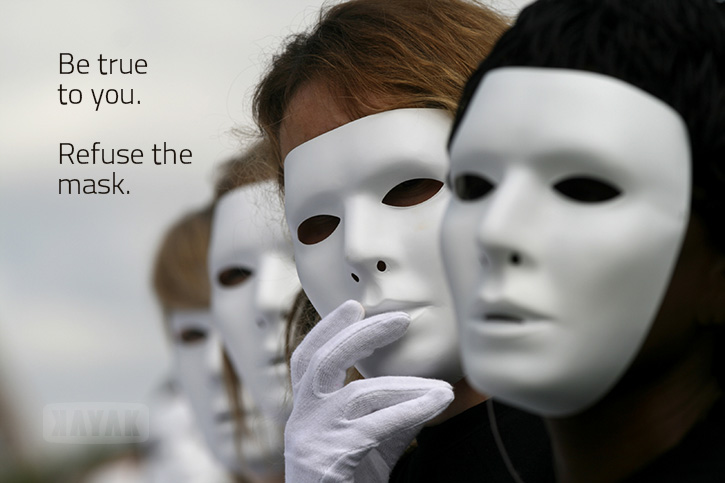
There is an interesting dichotomy floating around on the Internet. On the one hand, the web (and social media specifically) is supposed to be fostering creativity and individual expression. On the other hand, the partisan and anonymous nature of the Internet is fuelling a stronger and stronger herd mentality. A distance that causes people to act as they were wearing a mask.
The result is that more and more people are acting different than they would in real life.
Although I don’t necessarily consider myself to be the greatest thinker, I have been known to go against convention now and then. And when I have, I’ve seen how easy it is for people on the Internet to pile on and try to silence any voice that doesn’t agree with them.
As an example, last spring I shared my experiences in questioning a well-known “thought leader” who appeared to be intentionally deceiving his followers about a promotion he was running under the guise of it being a game. After making a few simple and polite inquiries, learning of and alerting him to the lack of disclosure, I found myself subjected to flaming, angry posts, and even flags that my comments were spam… all because I challenged another person about something he was doing that – to me – just didn’t feel right at all.
I suspect that if I were to meet these same people in person (at a party or the laundromat, for example), few would consider themselves to be followers, much less lemmings who'd blindly follow their leader off of a cliff. In fact, they would probably tell you that they champion the idea of free speech and individuality, as most of us do.
However, as in that example, what happened online, and happens all too often, is that one or two followers decided to protect their leader, drawing others in to join the push back without properly examining what the real issue might be. In the same way that sports fans “support the home team” even when the facts of a referee’s call are against them, the Internet appears to be training people to act before thinking.
When the subject is something like sports, this isn’t a big deal. Part of the entertainment involved in a sporting event is pulling for one side or another, even if we know subjectively that our team isn’t always the best or the most virtuous.
The bigger social issue involved is more serious, though. The more people are rebuffed simply for having different opinions, the greater risk there is to censorship (and bullying) in real life.
It’s common (and sound) advice for marketers to stay away from topics like religion and politics online. There’s no value in starting a fight when you’re trying to promote a product or service or build your reputation. But what about private people who want to learn more, or express ideas outside of their professional life?
If we can’t even go back and forth on the simplest of things in polite debate, how can we ever reach a level of understanding on bigger topics? And if we can’t ever discuss anything meaningfully, then how much of the Internet’s potential are we wasting?
As the web is becoming more personal, it’s clear that people are taking things more personally.
That’s understandable, but it also leads to problems if we reserve decency, common sense, and simple manners for our offline lives. The world, and the web, works best when we think and act as individuals rather than lemmings.

I hope I’ll live to see a day when people can communicate with each other online in the same way they would in a café or even in a meeting – with respect and patience and with a goal to open the door to communicating rather than closing it. I'd also like to imagine a world in which social media is used as it should be, as another communication outlet where we all take the time to consider what’s being said, and by whom, before we immediately take sides or join the rest of the crowd in supporting or condemning them.
There’s a big difference between a follower and being a participant. Let’s all try to remember that, and make the Internet a better place in the process. While you're thinking about it, you might like to check out this book: Disruption: How Successful People use Social Media for Business on Amazon. It contains chapters by several people about how they personally generate new business in social.
Topics: Digital Strategy, Content Marketing, All Articles